Encor Mouse Monoclonal to Ubiquitin
Ubiquitin is a highly conserved globular 76 amino acid protein of about 8.5 kDa molecular weight. It has a important role in the targeting of proteins for proteolytic degradation. Proteins to be degraded are covalently coupled to the C-terminus of ubiquitin by means of ubiquitin ligases. The ubiquitin itself is frequently also ubiquitinated, producing a polyubiquitin chain. The polyubquitinated complex is then recognized by a complex of degradative enzymes which together form the proteosome. Interestingly, ubiquitin also becomes covalently bonded to many types of pathological inclusions seen in serious human disease states which appear to be resistant to normal degradation, so that ubiquitin antibodies are very useful for studies of these inclusions. For example the neurofibrillary tangles and paired helical filaments diagnostic of Alzheimer’s disease, the Lewy bodies seen in Parkinson’s disease, and Pick bodies found in Pick’s disease are all heavily ubiquitinated and can all be readily visualized with ubiquitin antibodies of appropriate specificity.
MCA-Ubi-1 was made in the University of Florida in 1987, and has been continuously on the market place since 1989, and is now being sold by several vendors. It has become widely used to study ubiquitinated inclusions seen in Alzheimer’s and other kinds of disease. MCA-Ubi-1 was raised against purified ubiquitin conjugated with glutaraldehyde to keyhole limpet hemocyanin. The clone was initially screened on ELISA of the immunogen, and subsequently tested on sections of Alzheimer brain. MCA-Ubi-1 was one of several clones which stained neurofibrillary tangles in frozen sectioned material strongly and specifically. Subsequent studies indicated that MCA-Ubi-1 is relatively insensitive to formalin fixation and so can be used on mildly fixed histological sections of human brain for studies of Alzheimer’s disease. The antibody also works on paraffin embedded material. MCA-Ubi-1 also recognizes other ubiquitinated inclusion bodies such as the Lewy bodies of Parkinson’s disease and the Pick bodies in Pick’s disease in formalin fixed tissues. MCA-Ubi-1 will recognize human, bovine, chicken, Drosophila, and C. elegans in ELISA. MCA-Ubi-1 also works on Western blots and can be used to study ubiquitinated proteins. It has also been successfully used in competitive ELISA. MCA-Ubi-1 is a mouse IgG1 with a k light chain.
HGNC name(s) : UBB, UBC
Host : Mouse
Clonality : Monoclonal
ID : EnCor Biotechnology Ubiquitin Ubi-1-AP
Reactivity : Human | Horse | Cow | Pig | Chicken | Rat | Mouse
Isotype : IgG1
Conjugation : none
Immunogen : Purified bovine
Mass of detected protein : 8.5 kDa
Uniprot ID : P0CG47, P0CG48
KGNC name : UBB, UBC
RRID # : AB_2572391
Purification : Affinity purified at 1 mg/mL
Storage : Shipped on ice. Store at 4°C. For long term storage, leave frozen at -20°C. Avoid freeze / thaw cycles.
Validated applications : WB | IF/ICC | IHC
Suggested Dilutions:
WB: 1:1 000. IF/ICC and IHC: 1:1 000.
References :
Perry, G. et al. Proc. Natl. Acad. Sci. USA 84, 3033-3036 (1987)
Shaw, G. and Chau, V. Proc. Natl. Acad. Sci. USA 85, 2854-2858 (1988)
Hirano, S., et al. Cell 70: 293-301 (1992)
Cuervo, A.M., et al. Mol. Biol. 9: 1995-2010 (1995)
Sternsdorf, T., et al. J. Cell Biol. 139: 1621-1634 (1997)
Tae-Wan Kim, et al. J. Biol. Chem. 272: 11006-11010 (1997)
Verdier, F., et al. J. Cell Biol. 273: 28185-28190 (1998)
Laroia, G., et al. Science 284: 499-502 (1999)
Marti, A., et al. Nature Cell Biol. 1: 14-19 (1999)
Sternsdorf, T., et al. Mol. Cell Biol. 19: 5170-5178 (1999)
Recent Papers using MCA-Ubi-1:
1. Fortun J, Go JC, Li J, Amici SA, Dunn WA Jr, Notterpek L. Alterations in degradative pathways and protein aggregation in a neuropathy model based on PMP22 overexpression. Neurobiol Dis. 22:153-164 2006
2. Boutajangout A, Authelet M, Blanchard V, Touchet N, Tremp G, Pradier L, Brion JP. Characterisation of cytoskeletal abnormalities in mice transgenic for wild-type human tau and familial Alzheimer’s disease mutants of APP and presenilin-1. Neurobiol Dis. 15:47-60 (2004).
3. Wang DS, Bennett DA, Mufson EJ, Mattila P, Cochran E, Dickson DW. Contribution of changes in ubiquitin and myelin basic protein to age-related cognitive decline. Neurosci. Res. 48:93-100 (2004).
4. He CZ, Hays AP. Expression of peripherin in ubiquinated inclusions of amyotrophic lateral sclerosis. J. Neurol. Sci. 217:47-54 (2004).
5. Ungureanu D, Saharinen P, Junttila I, Hilton DJ, Silvennoinen O. Regulation of Jak2 through the ubiquitin-proteasome pathway involves phosphorylation of Jak2 on Y1007 and interaction with SOCS-1. Mol Cell Biol. 22:3316-26 (2002)
6. Wirbelauer C, Sutterluty H, Blondel M, Gstaiger M, Peter M, Reymond F, Krek W. The F-box protein Skp2 is a ubiquitylation target of a Cul1-based core ubiquitin ligase complex: evidence for a role of Cul1 in the suppression of Skp2 expression in quiescent fibroblasts. EMBO J. 19:5362-75 (2000).
7. Harris KF, Shoji I, Cooper EM, Kumar S, Oda H, Howley PM. Ubiquitin-mediated degradation of active Src tyrosine kinase. Proc Natl Acad Sci U S A. 96:13738-43 (1999).
8. Sternsdorf T, Puccetti E, Jensen K, Hoelzer D, Will H, Ottmann OG, Ruthardt M. PIC-1/SUMO-1-modified PML-retinoic acid receptor alpha mediates arsenic trioxide-induced apoptosis in acute promyelocytic leukemia. Mol Cell Biol. 19:5170-8 (1999).
9. Marti A, Wirbelauer C, Scheffner M, Krek W. Interaction between ubiquitin-protein ligase SCFSKP2 and E2F-1 underlies the regulation of E2F-1 degradation. Nat Cell Biol. 1:14-9 (1999).
Additional information
| Format | 50 ul, 100 ul, 500 ul |
|---|---|
| Supplier | |
| Host | Mouse |
| Clonality | Monoclonal |
| Conjugation | None |

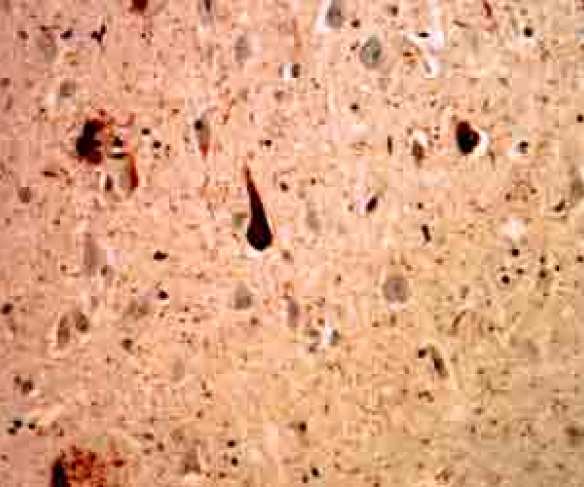
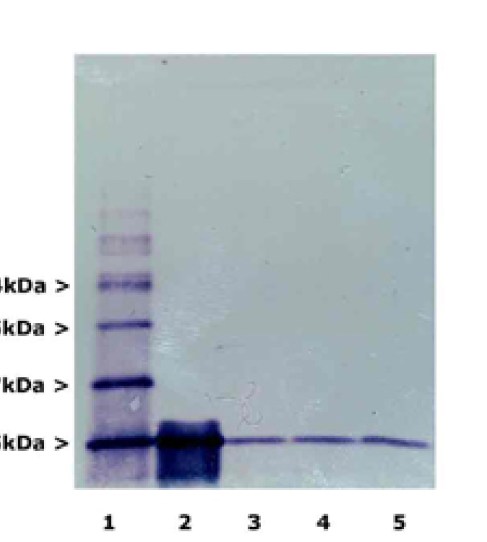
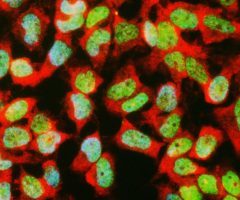
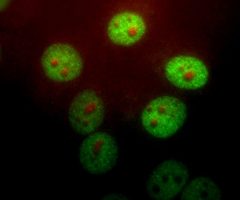
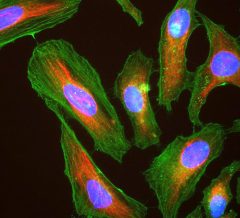
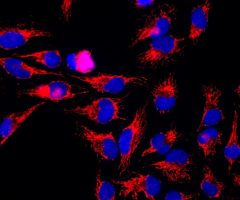
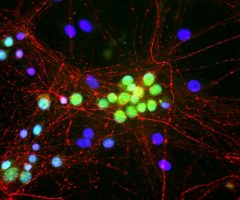
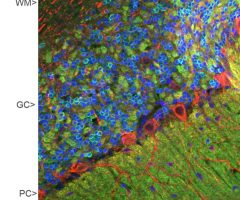
Reviews